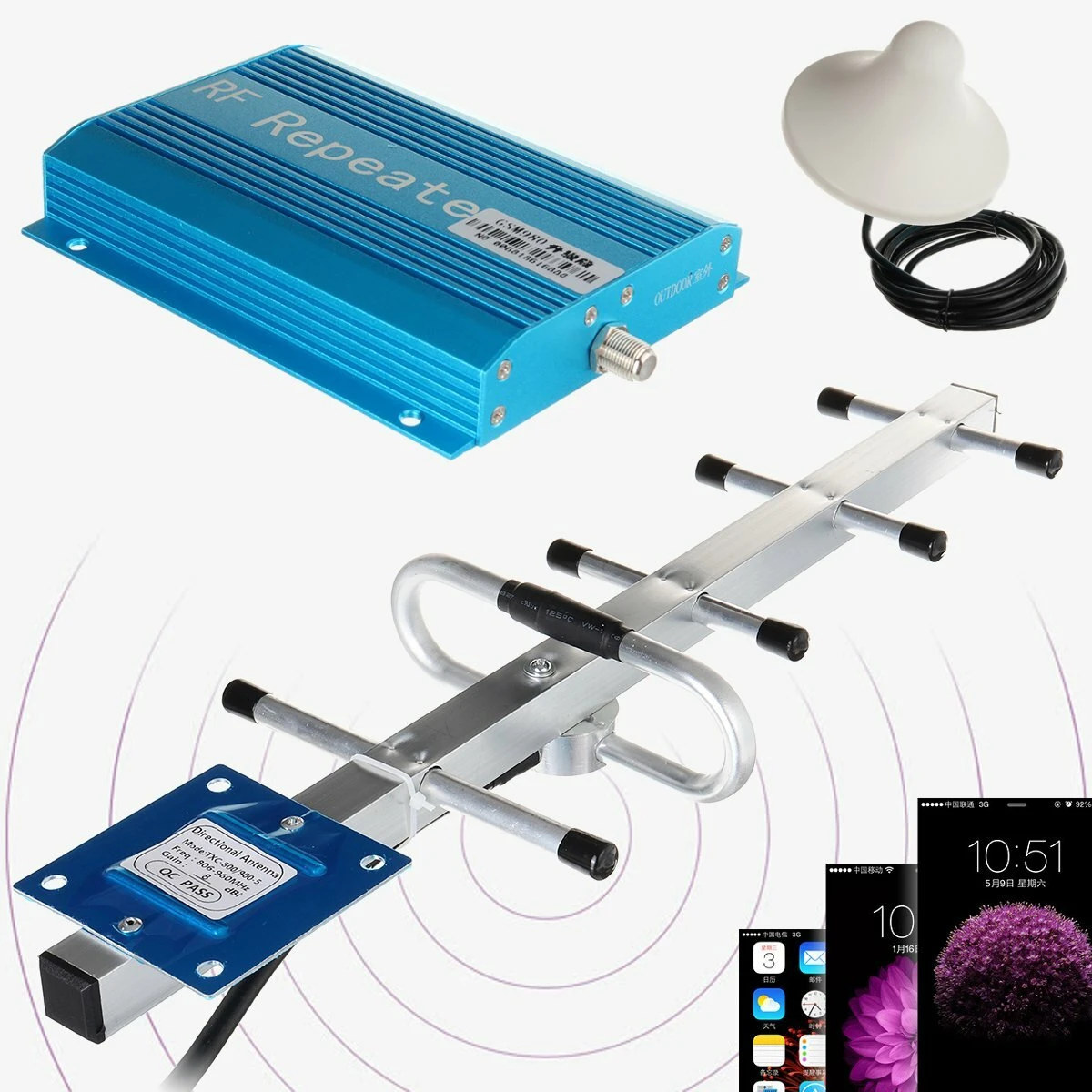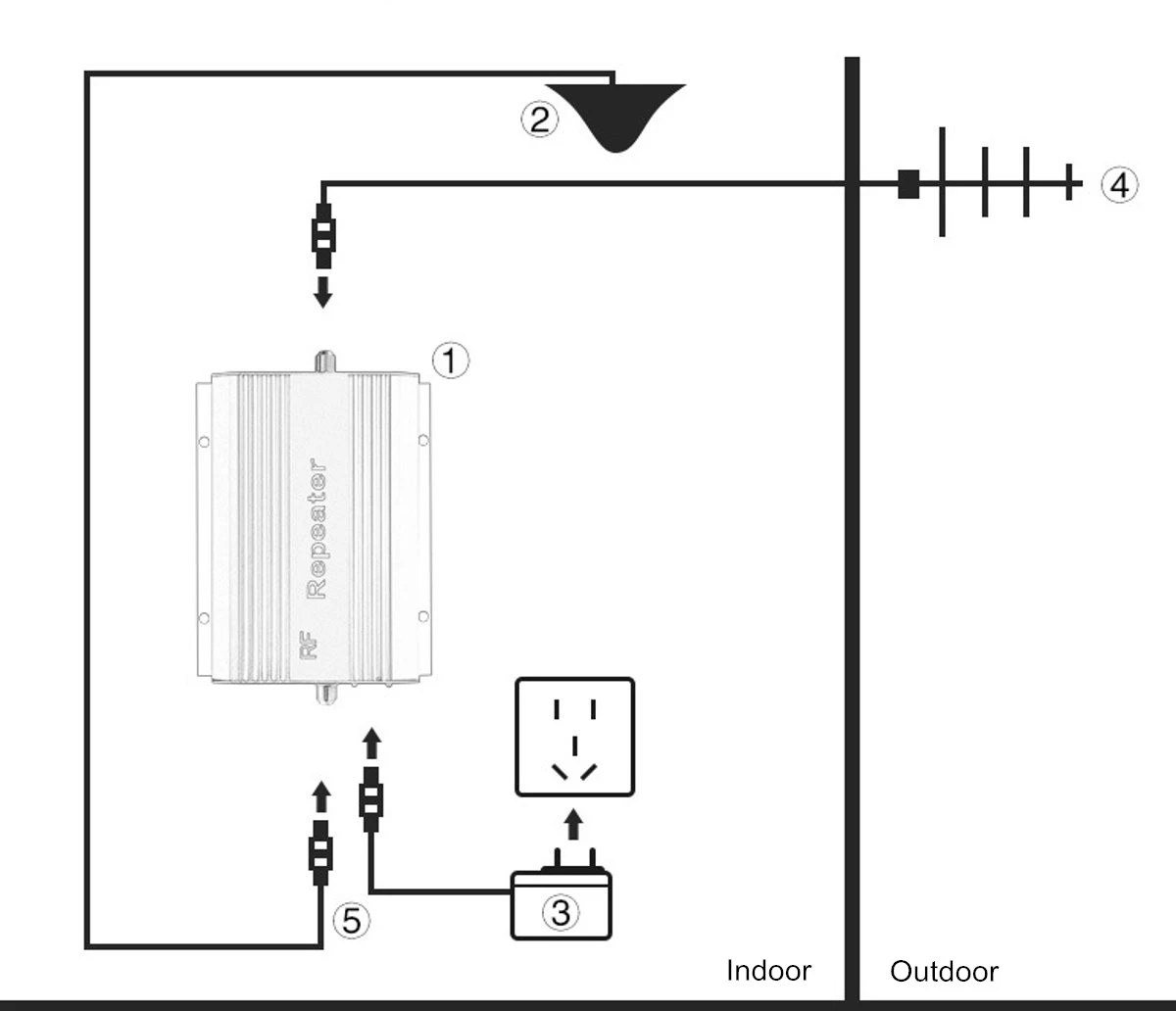If your WiFi router range does not cover some of your rooms what do you do? You install a WiFi repeater or some of the more recent WiFi mesh networking solutions. What I did not know is that you can do something similar for cellular connectivity if you don’t quite get a reliable signal from your telco’s base station.
Specifically, I’ve just come across a 900 MHz GSM repeater & signal booster that claims to be able to extend the 2G, 3G, and 4G cellular signal in a 100 to 300 m2 area, and sold for $59 on Banggood.
Here are the specifications listed for the GSM repeater:
- Operating Frequency Band – GSM
- Uplink: 890-915Mhz
- Downlink: 935-960Mhz
- Gain: 70dbm
- Outdoor Directional Antenna Gain – 8dB
- Compatible with 2G / 3G / 4G cell phone signal
- Power Supply – 12V DC via 110-240V DC adapter
- Dimensions – 135 x 105 x 23 mm (Aluminum Alloy)
- Temperature Range – -10 to 60°C
900 MHz corresponds to the B8 LTE band, so it’s not only for 2G GSM as I first assumed. You’d better check out if your country supports 900 MHz for 2G, 3G and/or 4G, and may also want to double-check whether such signal booster does not break any local regulations. The kit comes with the repeater itself, an indoor antenna, a high-gain outdoor antenna, and a power supply.
The installation looks quite easy, and the hardest part is probably to attach the outdoor antenna on a wall or roof and make sure it points to the closest base station. One way to check your frequency and/or base station location is with Network Cell Info Lite Android app.
If you’d prefer supporting more frequencies or a different frequency you’ll find various GSM repeaters on Aliexpress or Amazon US at various prices and some are tri-band repeaters with 900, 1800, and 2100 frequencies selling for around $100. While I did not personally know about those, cellular repeaters have been around for several years, and people who purchased those look to be satisfied in general.

Jean-Luc started CNX Software in 2010 as a part-time endeavor, before quitting his job as a software engineering manager, and starting to write daily news, and reviews full time later in 2011.
Support CNX Software! Donate via cryptocurrencies, become a Patron on Patreon, or purchase goods on Amazon or Aliexpress






